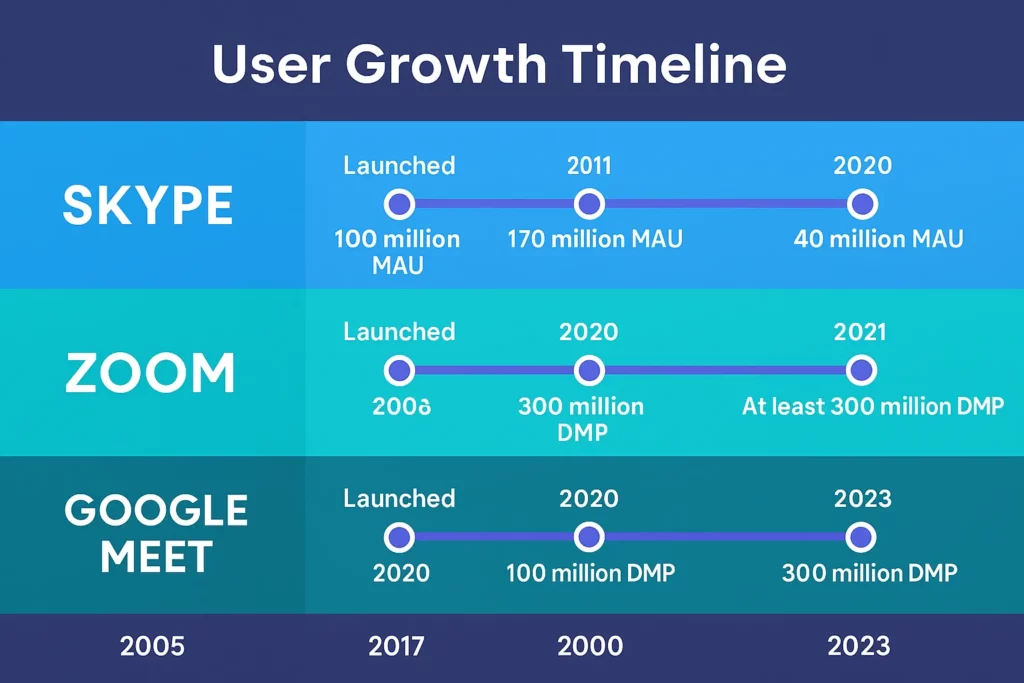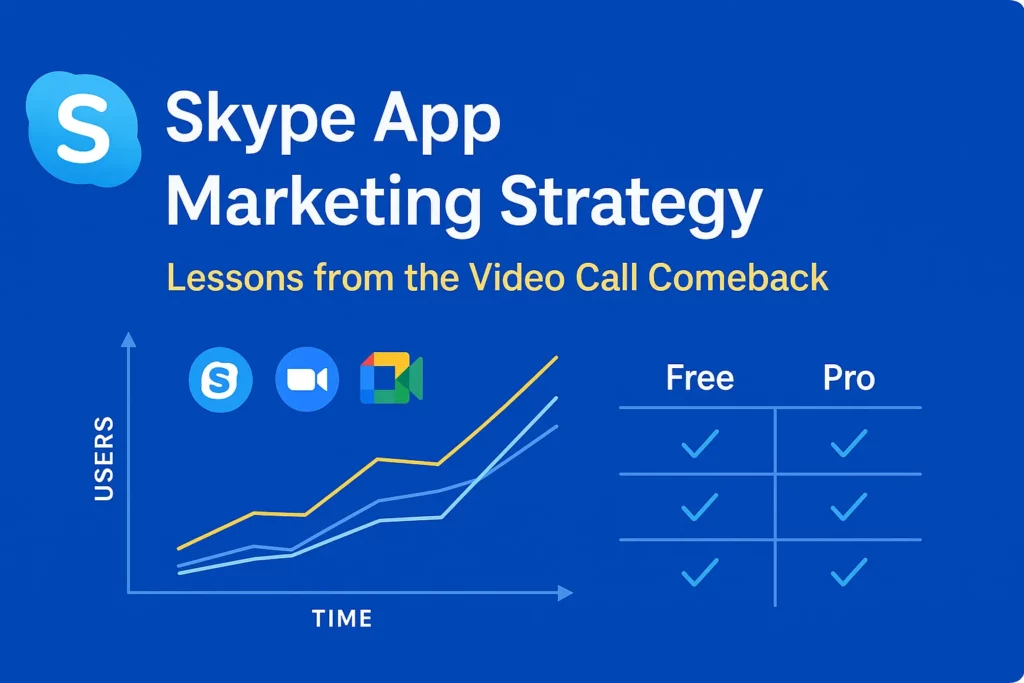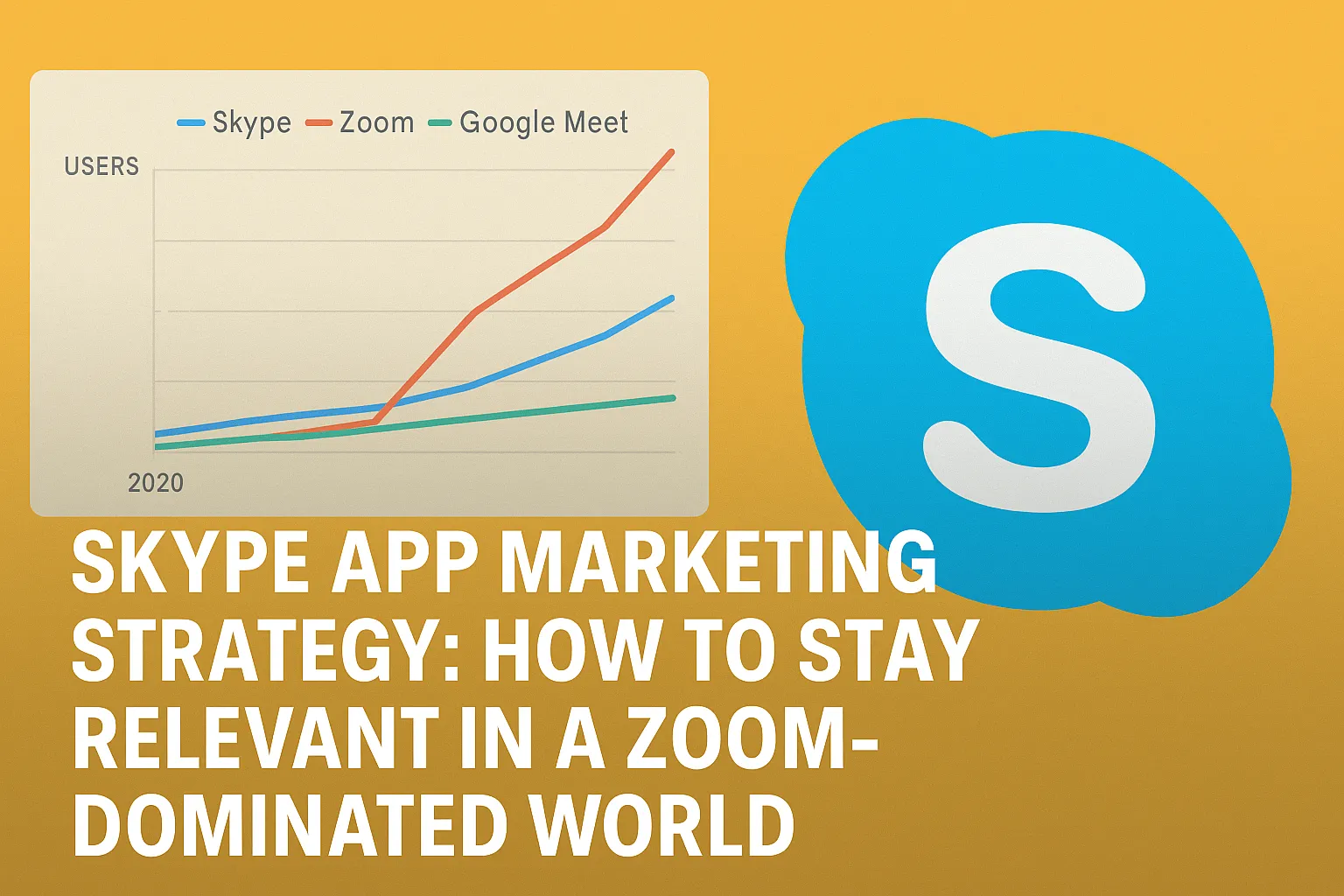If you were online in the early 2010s, Skype wasn’t just an app — it was the app. People Skyped like they Googled. “Let’s hop on a Skype call” was shorthand for remote meetings, long-distance dates, or checking in with grandma. Then… silence. Zoom, Meet, Teams, and others barged in, and Skype quietly slid to the back row.
But here’s the kicker: the demand for real-time communication apps has never been higher. People want secure video, crisp audio, and seamless chat across devices. So what if you’re building a Skype clone today refer Statista? Is it possible to market it in a way that feels new, useful, and dare we say, cooler than Zoom?
This guide unpacks just that. From storytelling hooks to UX-led growth tactics, we’ll walk you through how to take a Skype-inspired app from forgotten concept to modern necessity. And when you’re ready to build, Miracuves is just a ping away.

Why Skype Still Matters (And What To Learn From It)
The OG of Online Communication
Skype nailed a few things early on:
- VoIP audio calls across the globe
- Reliable video before HD webcams were cool
- Group calling before it became a pandemic necessity
It wasn’t flashy — but it was stable, simple, and surprisingly accessible.
What You Should Steal (and Improve)
- Cross-platform stability: Phone, tablet, desktop — must be consistent.
- Built-in translation: Global user base = multilingual UX.
- Low bandwidth performance: Make your app work without fiber internet.
Learn More: Skype Explained for Creators: What It Is & How It Works
Pre-launch: Creating Buzz for a Modern Communication Tool
1. Hook with the “Not Zoom” Narrative
Zoom fatigue is real. Position your Skype-style app as:
“A quieter, cleaner, more human way to stay in touch.”
Show you’re anti-corporate-meeting-mania.
2. Launch for a Micro-Niche
Don’t target “everyone.” Try:
- Remote therapists
- Language exchange learners
- Online classrooms in rural zones
Build features for them and market like you’re their missing tool.
Post-launch Power Moves: It’s All About Experience
1. Make the First Call Feel Like Magic
- Fast onboarding
- Test call feature
- Personalized “echo” bot like Skype used to have
Let people feel the quality before they start comparing specs.
2. In-App Features That Market Themselves
- Call recording with branded outro
- One-click guest link with custom backgrounds
- On-screen emojis or live reactions (lighthearted > corporate)
Learn More: Pre-launch vs Post-launch Marketing for Skype Clone Startups
Channels That Actually Drive Growth
Twitter/X Threads
Break down features, post stories like:
- “How we rebuilt Skype — but better”
- “Why our app doesn’t crash at 10 users on a call”
Add memes. Keep it real.
TikTok & Reels
People love before-after content:
- “What Zoom fatigue looks like”
- “What it feels like using [YourApp] instead”
Use punchy comparisons. Humor works best.
Substack & Tech Blogs
Reach early adopters by writing:
“Why video calling still sucks — and how we fixed it”
Include behind-the-scenes from your dev team.
Monetization: Keep It Ethical, Simple, and Addictive
Freemium Model
- Free for 1-on-1 and short calls
- Charge for groups, branding, storage
Paid Features to Add
- Meeting transcripts
- Voice filters or transcription (great for podcasting)
- Host scheduling and reminders
Positioning for Trust: The Make-or-Break Element
Trust is the backbone of any communication app. You must:
- Encrypt everything (say it, show it)
- Avoid over-collecting data (lean on minimal tracking)
- Make privacy part of your homepage narrative
Users want secure. They don’t want to read about it in your TOS.
Looking to build a secure, scalable Skype-style app? Explore our Skype Clone App Development services.

Conclusion
In a world full of noisy Zooms, there’s still space for simple, clear, human communication. If you’re building a Skype-style app, your real edge is this: design and market for people who want to talk — not just meet.
Make it smooth. Make it secure. Make it personal.
At Miracuves, we help innovators launch high-performance app clones that are fast, scalable, and monetization-ready. Ready to turn your idea into reality? Let’s build together.
FAQs
Is there still demand for Skype-like apps?
Yes — especially among non-corporate users like freelancers, teachers, and families. There’s a growing need for simpler tools.
How do I compete with Zoom or Google Meet?
Niche down. Build for a specific use case, do it better, and market it with a human-first voice.
Can I market this app as a privacy-first alternative?
Absolutely. Make encryption and data minimalism part of your product story from Day 1.
What features should I prioritize?
Low-latency video, stable call quality, easy onboarding, and customization options for group chats.
Should I offer both mobile and desktop versions at launch?
If possible, yes. But if you must choose, go mobile-first — it has higher viral potential with younger users.
How can Miracuves help?
We specialize in building scalable Skype-style apps with real-time chat, VoIP, video, and deep personalization — fully white-label and launch-ready.








